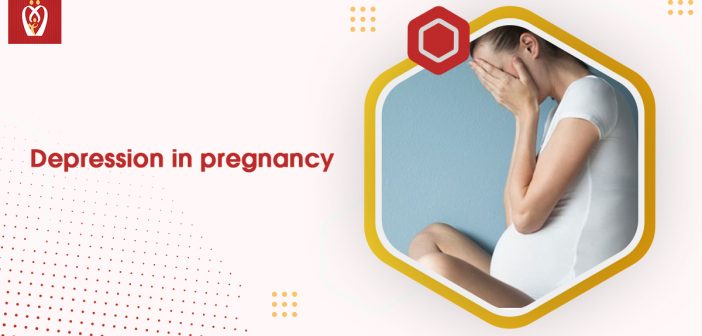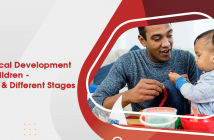During pregnancy, your body undergoes numerous changes. The stresses of these changes can lead to depression in early pregnancy. This emotional shift can impact how you perceive yourself and the world around you. If you are experiencing depression in pregnancy, you must contact a healthcare provider because it is treatable. Women who go through antenatal depression are more likely to experience postpartum depression. The Nurturey pregnancy app allows you to book an appointment with your GP/midwife immediately.
About Nurturey
The PinkBook from Nurturey is a “digital substitute” for the NHS’s Red Book. Pregnant women and parents can use the PinkBook to access their child’s health records, view upcoming health checkups, and get trusted information about their stage in the parenting or pregnancy journey directly from the NHS. If you are pregnant and have concerns, you can use the Nurturey pregnancy app to book an appointment with your GP or midwife immediately. You can also schedule appointments, reorder prescriptions, and communicate with your GP.
What is depression?
Depression is an emotional disorder that affects your mood. It can lead to feelings of sadness and disconnection. A depressed mood is a natural human reaction to loss, change, life’s difficulties, or self-esteem issues. However, depression can sometimes be severe, last for a long time, and prevent you from living a decent life.

Is depression common during pregnancy?
Depression affects pregnant women just as much as it does non-pregnant women. This condition can happen at any time, including during pregnancy.
What causes depression in pregnancy?
Different factors can elevate your risk of developing depression in pregnancy. These signs of depression in pregnancy may include:
- Having a family history of depression or premenstrual dysphoria (PMDD).
- Your age at the time of conception — the younger you are, the greater the risk.
- Living alone
- Having insufficient social support
- marital problems
- second thoughts about your pregnancy
Does pregnancy cause depression?
Depression in pregnancy is common. It is because your body goes through many changes during pregnancy. And the stresses of the situation can lead to depression in some women. However, not everyone who becomes pregnant suffers from depression.
If you have previously experienced depression, your symptoms may return, or if you suffer from depression before becoming pregnant, it may worsen.
Talking with your healthcare provider about depression in early pregnancy is crucial because it can last after delivery. In addition, women who suffer from depression in pregnancy are more likely to suffer postpartum depression (depression after the baby is born).
What are some of the symptoms of depression in pregnancy?
Your body undergoes numerous changes during pregnancy. Throughout your pregnancy, you may feel various emotions, some of which will push you up, and some will drive you down. It’s fine to experience a range of emotions. For example, symptoms of depression during pregnancy include:
- Having recurring suicidal or death thoughts.
- For the last two weeks, having a depressed mood for most of the day.
- Feeling guilty, hopeless, or unimportant.
- Problem thinking, concentrating, or making decisions.
- Losing pleasure or interest in almost all activities during the day.
If you have any of the symptoms listed above, your GP may ask you the following questions:
- Have you felt depressed, down, or hopeless in the last two weeks?
- Have you had little enjoyment or interest in doing things in the previous two weeks?
Your healthcare provider will ask additional questions if you answer yes to either as part of a more comprehensive depression screening test.
What effect does depression have on pregnancy?
Depression in pregnancy can have a variety of effects on a mother’s health. It can have the following consequences:
- It is crucial to maintain your health while pregnant. Depression can lead to a disregard for one’s own needs. It may be difficult to follow medical advice, sleep, and eat if you’re going through depression during pregnancy.
- Increasing your chances of using harmful substances. Tobacco, alcohol, and illegal drugs are some examples. Depression may lead you to use these substances, which can harm your pregnancy.
- Blocking your ability to bond with your growing baby. Your baby can sense emotion through your voice’s pitch, rhythm, and stress and hear you talk while in the womb (uterus). It may be difficult for you to form this bond with your baby if you are depressed during pregnancy. Thus, you may experience feelings of emotional isolation.
What are my options if I become depressed while pregnant?
You can take steps to help improve your mood when going through depression in pregnancy. Preparing for a new baby takes a lot of effort, but remember that your health is important and must come first. You can help with depression during pregnancy by doing the following:
- Resisting the urge to complete everything. Instead, reduce your chores and focus on activities that will help you relax. Remember that caring for yourself is important to care for your unborn child.
- Discuss your concerns. Talk to your friends, partner, and family. When you ask for help, you will usually get it.
If making these changes does not provide you with relief from anxiety and depression, seek the advice of your healthcare provider or a referral to a mental health professional.
Are antidepressant medications safe to take while pregnant?
According to growing evidence, many currently available antidepressant medications appear to be relatively safe for treating depression during pregnancy in terms of short-term effects on the baby. However, long-term effects have not been thoroughly investigated. Therefore, it would help to talk to your GP about the potential risks and benefits.







